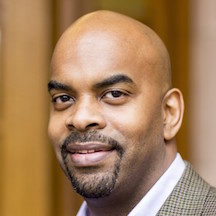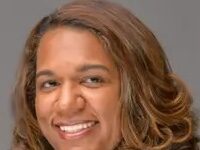 A new program at the University of Washington in Seattle seeks to create an environment where Black male students can succeed. The Brotherhood Initiative is a partnership between the university’s College of Education, Division of Student Life, Office of Minority Affairs & Diversity and Undergraduate Academic Affairs. The initiative is led by Joe L. Lott II, an associate professor of education at the university.
A new program at the University of Washington in Seattle seeks to create an environment where Black male students can succeed. The Brotherhood Initiative is a partnership between the university’s College of Education, Division of Student Life, Office of Minority Affairs & Diversity and Undergraduate Academic Affairs. The initiative is led by Joe L. Lott II, an associate professor of education at the university.
The Brotherhood Initiative, to launch this fall, includes a yearlong freshman course focused on introducing students to research and providing guidance in areas like choosing a major and financial literacy. Additionally, a Men of Color Academy is planned to provide mentoring and activities intended to keep students engaged from their first year through graduation, such as study abroad opportunities and professional development. The goal is to reduce the graduation rate gap between Black men and Black women and also to close the racial graduation rate gap.
Dr. Lott says that “what we’re trying to do is help create a tighter community, particularly among males of color, to increase their presence on campus, to make them feel like they belong and to let them know that the University of Washington is part of their community.”
For students who join the Brotherhood, Dr. Lott says “I want them to be civically and socially conscious, and to feel the need to reach back and help other Black males understand what it takes to get to college and succeed in college. I want to let them know the University of Washington is a place for them. The brotherhood could be their home.”
Dr. Lott joined the faculty at the University of Washington in 2007. He is a graduate of Talladega College in Alabama, where he majored in public administration. Dr. Lott holds a master of public administration degree and a Ph.D. in education leadership and research from Louisiana State University.













I commend the UW on the efforts of Black male students succeeding on campus. However, we as Black (African-American and male/female) faculty/staff on campus must come together first in order for our students (that look like us) to succeed. This coming from someone who has been on the campus since the 90s.
Furthermore, we must be genuine – because students on campus can tell the difference; and, we cannot be selective (if students were admitted to the UW – they already overcame a barrier) in choosing who we want to help succeed.
I wish Dr. Lott much success in the UWs efforts.
I commend Dr. Lott for his initiative to improve and increase the graduation rate for black males on campus. However, Dr. Lott must remember — the “gap” between black males and black female graduates should not be the emphasis. The true concern must focus on black males and their willingness to put forth an effort to succeed academically. Although many black students share similar issues — it must be noted not all blacks have the same familial experiences. In essence, the task is not to “close” a superficial gap between black male and black female students — it is to prepare both sexes for success in our society at large – where the real gap exist.
The gap between black males and black females in terms of graduation and degrees earned is not superficial. The Department of Ed and various universities repeatedly report data year after year that show the gap. We need to leave room in the discussion of the black student’s educational experiences to discuss what’s happening with black males versus black females. I do think, however, we should be having more critical conversations about the sort of curriculum and values that are being nurtured in these sorts of initiatives. One of the biggest limitations I see within these black male initiatives is the failure to address toxic masculinity and how it specifically impacts the way black males treat their female counterparts. What good is helping our males achieve academically and financially if we don’t also help them to be better sons, fathers, friends, partners etc. in a healthy, spiritually and emotionally intelligent way?